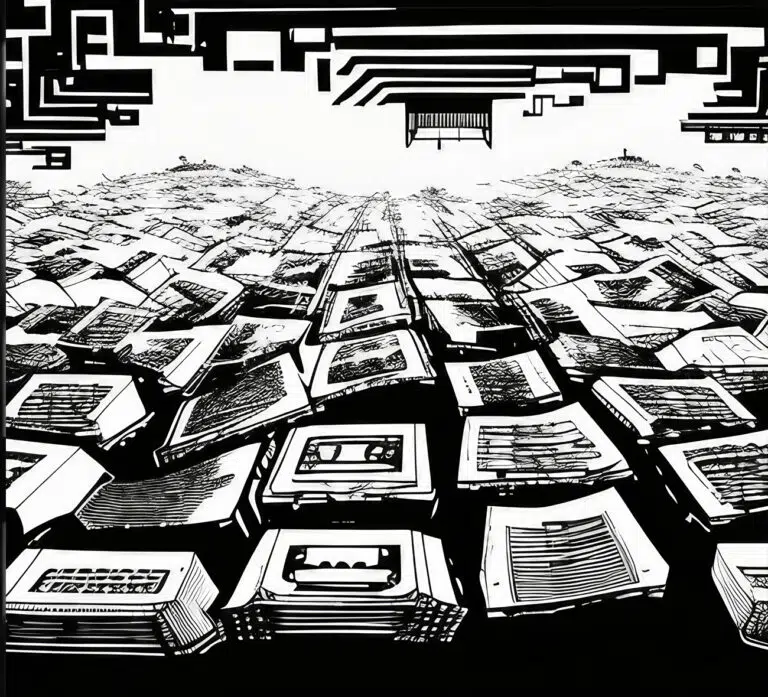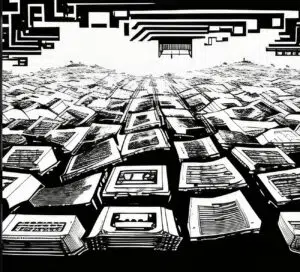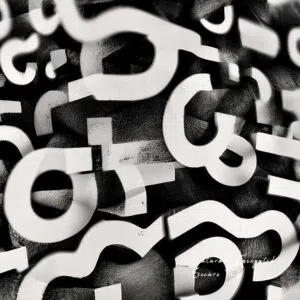The internet has come a long way since it first graced our screens, and we are currently in the midst of the transition from Web 2.0 to Web 3.0. Web 3.0, or simply Web3, is a term used to describe a new and improved internet that’s all about giving more power to the people.
Web3 is the next phase of the internet, and here, you’re the boss. Blockchain, cryptocurrencies, and NFTs are the magic ingredients that let you own and control your data and online activities. We’re talking about a decentralized and more secure web that puts the power back in your hands.
So, let’s break it down. In this article, we’re gonna chat about what Web3 is, all the amazing benefits it brings to the table, and of course, the juicy controversies surrounding it.
Say Hello to Web3
Web3 is a decentralized web that is based on blockchain technology. Unlike Web 2.0, which is characterized by centralized control by tech giants, Web3 is designed to be more decentralized and democratized. Web3 aims to shift the control of data and content back to the users, giving them more control over their digital lives.
Web3 enables the creation of decentralized applications (dApps), which run on decentralized networks, rather than on centralized servers. These dApps use blockchain technology to store data and execute code, making them more secure and tamper-proof than traditional applications.
What are the possible benefits?
Web3 has the potential to transform the internet in several ways. Firstly…
Privacy and Security
Web3 can enable greater privacy and security for users. Since the data is stored on a decentralized network, it is more difficult for hackers to compromise it. Users have more control over their data, and can choose to share it only with the applications and services they trust.
Greater Inclusion
Web3 can enable greater financial inclusion. Blockchain technology can enable the creation of decentralized finance (DeFi) applications, which can provide financial services to people who are unbanked or underbanked. DeFi can also enable cheaper and faster transactions, without the need for intermediaries like banks.
It’s More Transparent
Web3 can enable greater transparency and accountability. Since the data is stored on a public blockchain, it is transparent and auditable, making it easier to hold organizations and governments accountable.
How does the general public actually feel about Web3?
Web3 is still pretty new and not a lot of people know what it is yet. Basically, it’s the next version of the internet that’s supposed to give users more control over their data and online identities. Some folks are pretty hyped about Web3, especially those who care about privacy and controlling their online info.
The idea is that Web3 will be more open, transparent, and decentralized than the current web, but some people are skeptical and think it’s just a bunch of hype with no substance.
Overall, since Web3 is still in its early days, it might take a while for most people to fully get what it’s all about and start using it.
Why is Web3 so Controversial?
Web3 is a pretty controversial technology for a bunch of reasons. For one, it messes with the way the internet is currently run. Companies like Google and Facebook have a lot of power over what we see and do online, and Web3 could shake things up in a big way.
Plus, Web3 is tied up with cryptocurrencies, which are a pretty divisive topic. Some people think cryptocurrencies are super cool and could change the way we use money forever, but others think they’re just a scam waiting to happen.
And of course, there’s the whole environmental angle. The way Bitcoin and proof-of-work blockchains work (which most people associate with Web3 as a whole) takes up a lot of energy, and that’s got the public worried about its impact on the planet. People are concerned that all the mining of cryptocurrencies is using way too much electricity and could be doing some serious harm.
The Internet’s Decentralized Future
Web3 is the next phase of the internet that promises to give more power to users through decentralization, democratization, and security. It has the potential to transform the internet by providing greater privacy and security, financial inclusion, and transparency.
But, Web3 is still relatively new, and not many people fully understand its potential or how to use it. There are also controversies surrounding Web3, including its disruption of the current power structures of the internet, its association with cryptocurrencies, and its potential impact on the environment.






